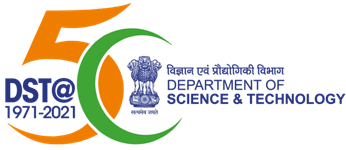



I completed my Ph.D. in 2004 at ARIES, Nainital, and TIFR, Mumbai, India, with a focus on the search for microlensing events utilizing the pixel method. My doctoral thesis, titled 'Search for the Microlensing Events using Pixel Method,' was a significant contribution to this field. In 2001, I became part of the Indo-French project, specifically the Nainital Microlensing Survey. Here, I conducted an extensive photometric survey of the M31 disk using a 104-cm telescope to identify microlensing events. I played a key role in developing a reduction pipeline for the 'pixel analysis' technique, enabling the identification of optical transient events in the photometric data. This effort led to the successful detection of a microlensing event in the direction of the M31 galaxy. During the period of 1997-1999, I was actively involved in site characterization at Devasthal, Nainital, as part of the initiative to establish a 4-meter class telescope at the location. In the course of the Nainital microlensing survey, I contributed significantly to the detection of variable stars, particularly Cepheid variables. The use of these stars, with their well-known period-luminosity relation, proved invaluable for determining the distance of the host galaxy. Our photometric monitoring of M31 spanned four successive observing runs from October to January each year. Taking advantage of this extensive timeframe, we conducted a thorough search for novae erupted in our target field during the same period. Over the course of our four-year survey, we achieved notable results, including the detection of one microlensing event, 26 long-period Cepheids (P > 7.5 days) using DAOPHOT photometric technique, 39 low-period Cepheids (15 > P > 3.5 days) using the pixel technique, 2 classical novae, including one fast nova, and the identification of more than 300 variable stars in the M31 galaxy.
Indo-Austrian project entitled “Probing of Hot Jupiters Environmental and Physical Conditions: Numerical Modeling vs Observations” was awarded by DST, New Delhi (2019-2022).
Indo-Russian project entitled “Investigation of the structure and kinematics of the young population of the Galactic disk in the solar neighborhood” was awarded by DST (2015-2018).
Indo-South Africa project entitled “Observations and analysis of stars in the Kepler field” was awarded by Department of Science & Technology (DST), New Delhi (2014-2018).
The project entitled “A census of baryonic matter in the halos of galaxies” under which I completed my Ph.D work was awarded in Excellent category by the Indo-French Centre for Promotion of Advance Research (IFCPAR), New Delhi in the year 2004.
Best Group Achievement award by the UK Royal Astronomical Society, London in the year 2010 for the contribution in SuperWASP project, which has been most successful ground based survey to detecet extrasolar planets.
Certificate of Reviewer Excellence award for the year 2020 by Indian Academy of Sciences, Bangalore
Life member of Astronomical Society of India in the year 2013
Life member of International Astronomical Union at the XXIXth General assembly in Honolulu in the year 2015
Dr. Yogesh C. Joshi
Scientist-F
Aryabhatta Research Institute of Observational Sciences (ARIES)
Ministry of Science and Technology, Govt. of India
Nainital-263001
India
Office Room: 125
New Building, First Floor
Office Phone: +91-(0)5942-270754
Office Extn.: 754
Email: yogesh@aries.res.in
Last modified Tuesday, 01 July 2025